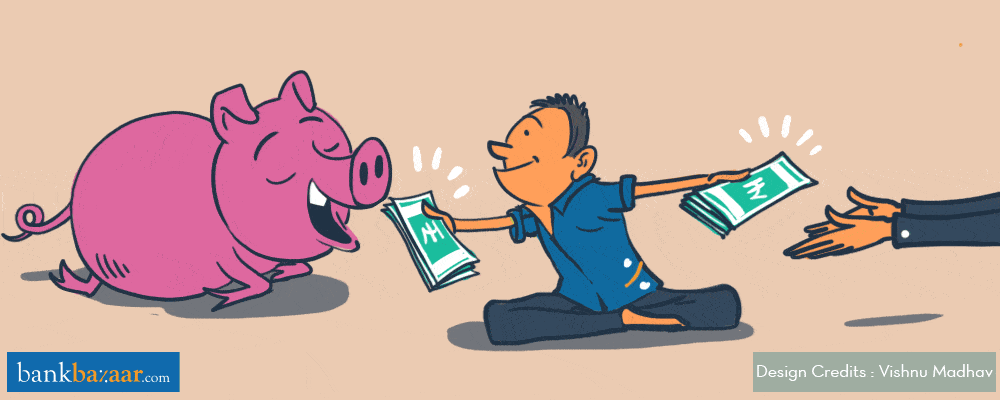Should you focus on saving more or paying your debts off? Here’s how to decide.

Managing your finances is not as easy as it sounds. If you’ve just started earning and are still getting used to making a budget and strictly adhering to it, you’re bound to be confused about a lot of things. Your money is undoubtedly one of the most important things in your life, and we’re sure you wouldn’t want a bad decision impacting it in a negative way.
To help you with your decision-making, we’re here to answer one of the most common and complicated questions ever—‘invest or pay that debt off’. Both are equally important. You should have enough saved for rainy days to be financially stable in the future. You should also be debt-free for as long as possible.
That doesn’t mean taking loans or borrowing money from your friends/family is bad; it just means that you need to ensure you pay them off on time. You don’t want to spoil your relationship with friends/family over silly money matters, right? You also wouldn’t want to hurt your Credit Score by missing Credit Card or instalment payments. Balance is the key here. The day you analyse your financial situation well enough to decide whether saving makes more sense or getting rid of that debt, you’ll be set!
Additional Reading: Top 3 Financial Dilemmas Solved
That day is today! Here’s how to decide:
Check the interest rate on your debt
Whether saving is a better idea or paying that debt off makes more sense primarily depends on the interest rate of your debt. There’s no point delaying that debt payment (Credit Card or loan instalment) if the rate of interest is too high. You should focus on paying it off and concentrate on the savings part later.
Run a quick check on your emergency fund
‘Emergency fund? What’s that?’
We hope that wasn’t your reaction. In case it was, you need to gear up buddy! Savings should be your first goal in that case. Nobody knows your living expenses better than you. So, it’s better to set some money aside, either in the form of a Recurring Deposit or a Fixed Deposit. This money, apart from being safe, will also earn you a better rate of interest. Don’t wait! Start saving today.
It takes two to tango!
While running the checks mentioned above can help you figure a lot out, what we recommend is a balance between the two. Saving for a rainy day is as essential as paying your debts off. Try and strike a balance between the two. That might mean cutting down on a lot of unnecessary expenses and it could also mean changing your lifestyle drastically. But the silver lining here is that you’re getting the best of both worlds. You’ll have enough savings to help you in an untoward situation, and you’ll also be debt-free or at least your debt will be under control.
Additional Reading: Follow These Simple Tips To Become Financially Independent
Stop paying, start investing
Once you are done paying your debts, ensure that you invest at least that same amount of money that you paid for your debt every month. This way your savings won’t get compromised in the long run. The period for which you didn’t invest and only paid that debt will need to be taken into account. Investing more after paying off your debt will compensate for the period when you had stopped investing. For example, suppose you had a debt of Rs. 10,000 and you decide to pay it off by using Rs. 15,000 every month. Once you finish paying the debt, start investing Rs. 15,000 every month. This will help you get better returns and save much more in the long run.
That sounds like a plan, doesn’t it? Having enough savings can significantly reduce the need to take more loans in the future. Since you’ll have an emergency fund to help you out, you needn’t take a Personal Loan or borrow money from friends. That’s like killing two birds with a single stone, isn’t it?
Being debt-free or having it under control is as relaxing as knowing that you have enough saved for a rainy day. After all, peace of mind is all we’re aiming at. Moreover, paying your Credit Card dues and other loan instalments on time also helps maintain your credit history. You know the importance of a good credit history, don’t you?
It could be hard for you to decide between savings or repaying that debt. To make things easier, we suggest you consider juggling both simultaneously. Although, paying that debt off might sound like the right thing to do, be logical and consider building an emergency fund as well.
Looking for something else? Help is just a click away!